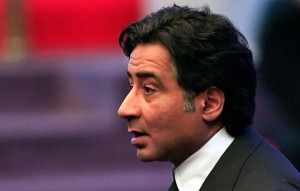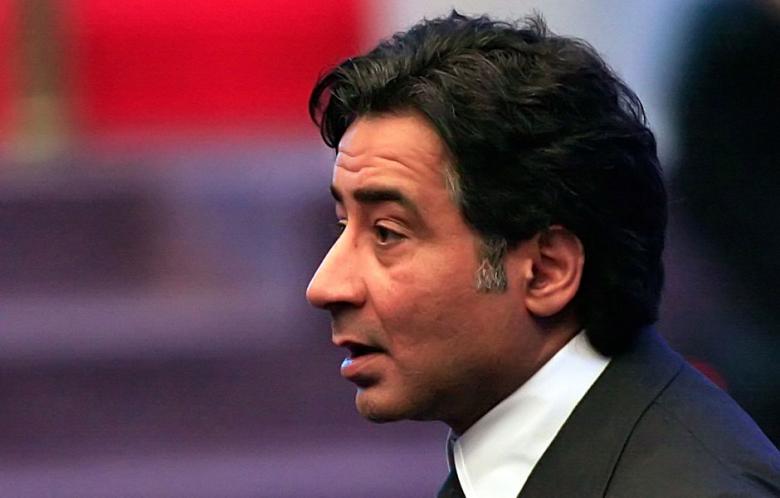
(AFP Photo)
Mubarak-era political and industrial tycoon Ahmed Ezz has submitted an application to run as a candidate in the upcoming parliamentary elections in March.
Ezz’s application was initially accepted in a Menufiya court, where he will run for Al-Sadat district in the Nile delta governorate, according to state-run newspaper Al-Ahram.
The powerful businessman headed the organising committee for the Mubarak-era ruling National Democratic Party (NDP). He was also considered a close associate of the toppled autocrat Hosni Mubarak and his once apparent presidential heir and son, Gamal.
Ezz was arrested following the 25 January Revolution and was prosecuted on charges of corruption, money laundering and monopolisation. He received sentences in September 2011 to 10 years in prison, a seven-year sentence in October 2012, and 37 years in March 2013, in addition to several billion Egyptian pounds in fines.
In August 2014, Ezz was bailed after he served the maximum pre-trial imprisonment period. His 10-year sentence was annulled by the Court of Cassation, with appeals in other trials ongoing.
Ezz’s last connection to parliamentary elections was in 2010, when the controversial vote resulted in a huge victory for the then-ruling NDP. The party won 81% of the seats, a win that was highly criticised by opposition factions and international monitors.
The 2010 elections, which consolidated the Mubarak regime’s power, were a factor in stirring the people’s rage, causing them to take to the streets in January 2011 and dethrone Mubarak.
Ezz was considered the mastermind of the NDP’s campaign in the 2010 elections. The vote witnessed violence exerted by security forces, and was described by human rights watch as “controlled violence”.
The US also showed concerns then about the fairness of the vote, saying: “We are dismayed by reports of election-day interference and intimidation by security forces.”
Even Egypt’s Supreme Electoral Commission (SEC) acknowledged some irregularities and violence, but said the elections were a success and the results will stand when announced.
In April 2011, in the wake of Egypt’s revolution, the Supreme Administrative Court dissolved the NDP and ordered the liquidation of its assets.
In May 2014, the Cairo Urgent Matters Court banned leaders of the dissolved party from running in the upcoming presidential, parliamentary and local council elections.
However, that ruling was overturned in July. The Cairo Urgent Matters Court of Appeals said the plaintiff failed to present to the court any evidence incriminating NDP leaders in corruption charges. The court added that in that case, the initial decision would have violated such leaders’ right to political participation.
The 2012 constitution, drafted and issued under Morsi’s rule, banned NDP leaders from political work and prohibited them from running in presidential or legislative elections for a period of 10 years. This article was removed from the 2014 constitution.
Ezz is not the only a former NDP member or Mubarak-era figure who will run in the upcoming elections. On Sunday, almost 200 former NDP members applied to run in the elections in the Mansoura governorate only, Al-Ahram reported.
Former Mubarak-era premier and presidential elections runner up in 2012, Ahmed Shafiq, is leading one of the coalitions that will run candidates on all the individual and list systems seats.
Political parties participating in the elections seem not to mind the participation of former NDP members. The Salafi Al-Nour Party, one of the major forces in the upcoming elections, said it would appear on the same electoral list as former NDP members, as long as they are not implicated in corruption, its leader said to Al-Ahram.
The vote, which will start on 21 March, is considered the third pillar of the transitional roadmap announced following the ouster of the Muslim Brotherhood government and president Mohamed Morsi in July 2013.
Of the total number of parliamentary seats, 540 will be determined by direct voting, with 27 members to be appointed by the president. Of the elected seats, 120 will be filled by candidates on party lists, while 420 by individual candidates.


